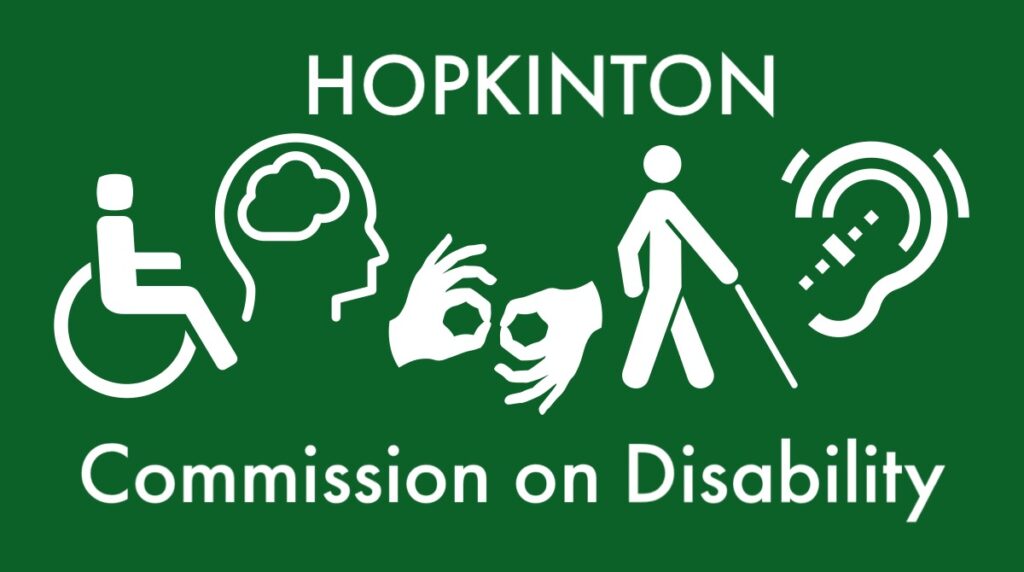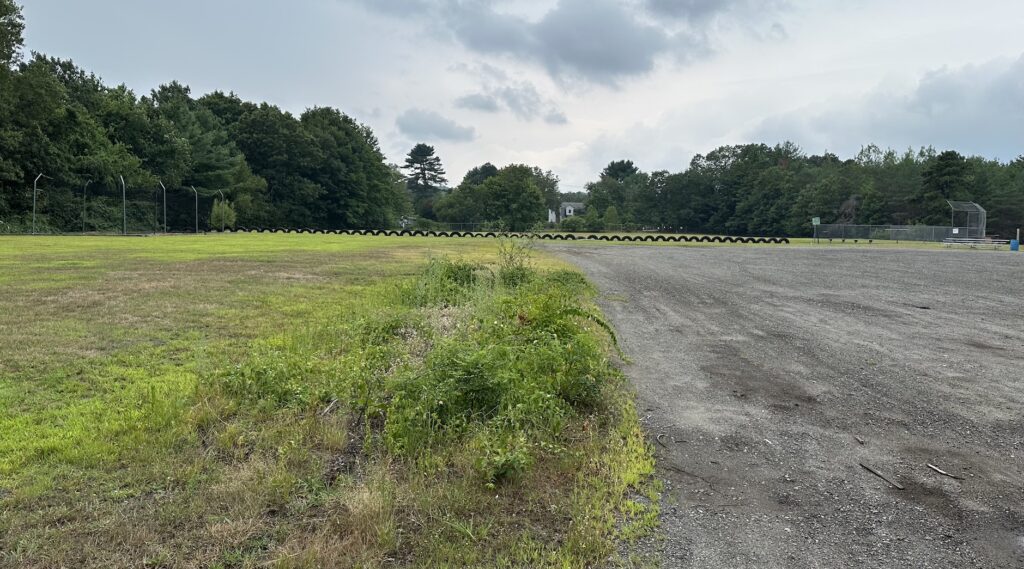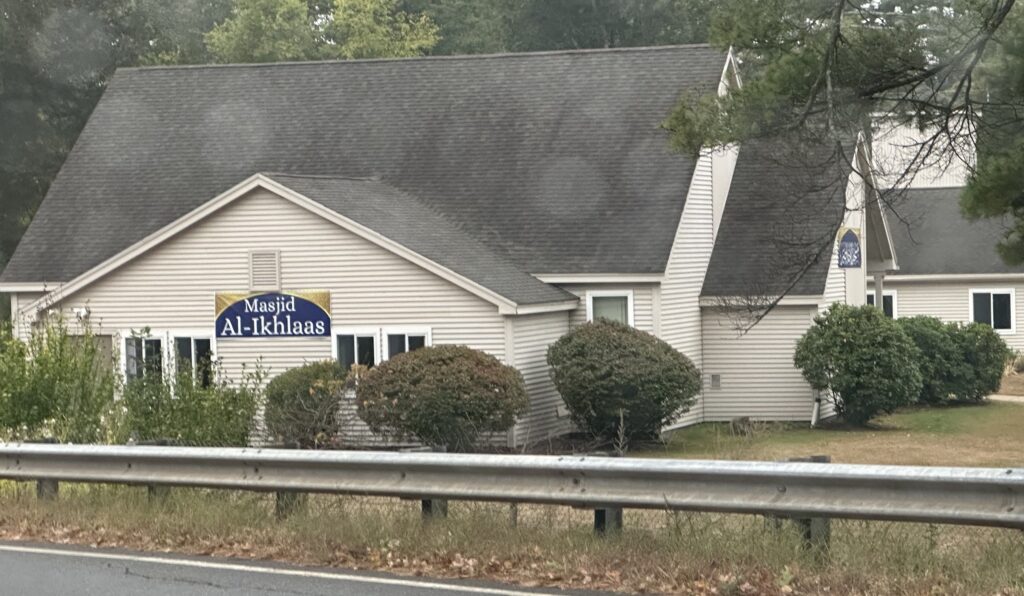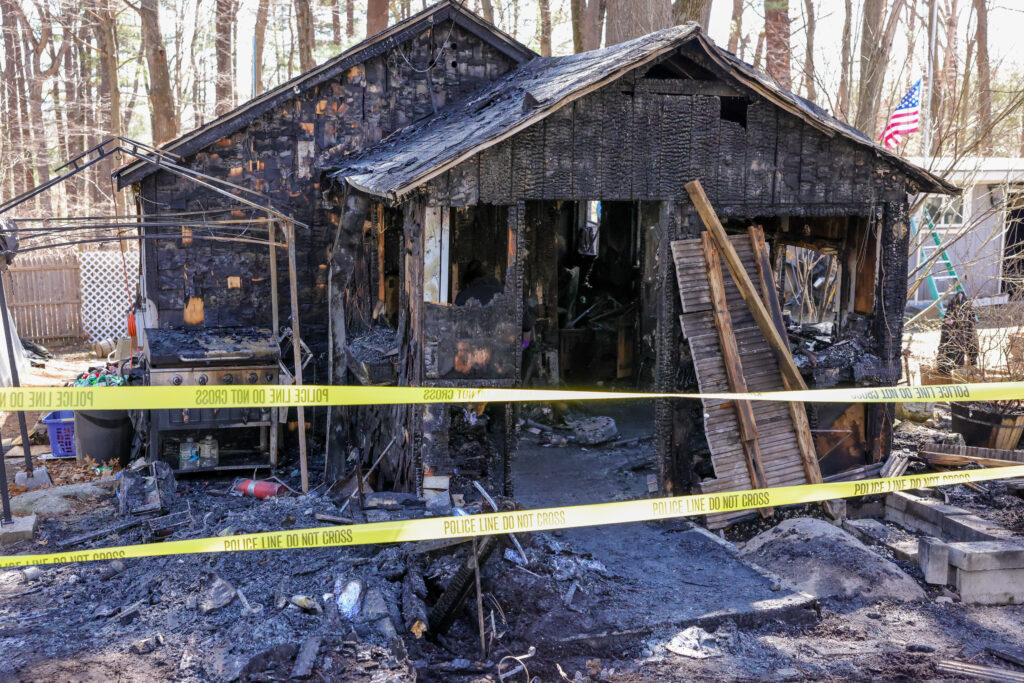The Select Board, joined by School Committee members and the Community Preservation Committee chair, on Tuesday discussed ways to fund a proposed adaptive playground without putting additional strain on the town’s tight financial resources.
Ken Weismantel, the CPC chair, presented the rationale behind the committee’s decision to allocate $300,000 toward the adaptive playground for fiscal year 2026. Because its proposed location is at the Marathon School, he said residents would not have full access to it as they are prohibited from school grounds while school is in session. The School Department, he argued, should find money in its budget and through other sources for its $1,242,882 cost because it will be used primarily by its students.
The CPC recommended $100,000 in FY 25 for a location study and engineering costs, he added. Town Meeting approved that in May.
“The location concerns drive the CPC decision,” said Weismantel, noting that CPC members are comfortable with funding a portion of the cost through its open space fund. The CPC’s total revenue for FY 25 is projected at $1.7 million. There are several other projects competing for funding, and some previously funded projects might need additional money to complete.
Said Weismantel: “We don’t want to use up all our ability to fund future projects.”
While the former Center School property would be advantageous because of its location, it was not considered for the adaptive playground, Weismantel said. A current proposal for the Center School’s reuse in a public-private partnership with the Hopkinton Center for the Arts has been gaining momentum, making the future of the land behind it uncertain.
Weismantel acknowledged that the town does not have an adaptive playground. But he also noted that information he had showed that the majority of the 45 communities that have adaptive playgrounds spent between $100,000-$500,000.
Susan Rothermich, the schools’ assistant superintendent of finance and operations, pointed out that a committee researched this option for several months. One reason the Marathon School site is ideal is because of its flat surface area. That is a reason why adaptive equipment can’t be added to current town playgrounds. She added that the Capital Improvement Committee did not approve the funding request.
“I think a lot of us would like to find a way to make this happen,” said Select Board member Amy Ritterbusch. “Obviously, we’re all very short on funds this year, and there’s a lot of other projects.”
“This project is important to the School Committee as well,” added School Committee chair Nancy Cavanaugh, stressing collaboration with the town. “It fills a significant need.”
Select Board member Joe Clark suggested that the CPC kick in half of the cost.
Said Clark: “My big thing is how do we do this without raising taxes?”
“We being an equitable town, we want all our children to have access — equal access,” added Select Board member Shahidul Mannan. He asked if some of the town’s free cash could be used to help cover the cost.
Weismantel suggested that equipment be added to the adaptive playground over time to cut the cost.
The issue will be revisited at a future meeting.
FY 26 comprehensive budget submitted
The FY 26 comprehensive budget was submitted for Select Board review by Town Manager Elaine Lazarus. She noted that it is within the 2.5% increase range allowed under Proposition 2 1/2.
“It incorporates the use of available funds with the estimates we’ve received to date,” she said. “It reflects a sensitivity to tax impact, streamlines the provision of some services, and addresses the town’s long-term financial stability.”
There is a $1,881,664 gap between anticipated revenues and proposed expenses. Non-school town departments initially were asked to limit their budget requests to no more than a 1.3% increase in order to balance the budget. But the $1.73 million in cuts “showed some deep cuts in services and personnel,” Lazarus said.
After Lazarus reviewed the numbers with Kyla LaPierre, the town’s chief financial officer, they agreed to a 3.34% increase maximum for the town departments. This would retain core services while having “less than level service in some areas.” This brings the amount to $1,013,385 lower than the initial budget requests submitted by town departments.
A positive part of this process is that some town services have been streamlined and consolidated, the town manager noted. She suggested a targeted use of free cash for one-time expenses and town events. LaPierre estimated the amount of free cash to be around $9 million.
“We have some decisions to make over the next couple of months,” said Lazarus.
One revenue source that bolsters the amount of free cash, she explained, is the $4 million released by the Board of Assessors from the overlay account to the general fund as free cash. This arose from the settlement of pending cases by Eversource to the Appellate Tax Board. The final free cash number is expected to be certified in the near future.
However, cautioned LaPierre, “Spending free cash limits options for next year.”
Mannan called the situation “a Catch-22.”
One expense that is sorely needed is a $3.2 million public safety radio system upgrade, according to LaPierre. The current system is about 25 years old, and this request has been deferred for the past few years.
LaPierre noted that the state budget was to be released on Jan. 22, so the amount of state aid would be known then.
Over the next month, town department representatives will appear before the Select Board to discuss their requests.
Proposed Town Meeting articles reviewed
Four articles have been proposed for the May 5 Annual Town Meeting, Lazarus said. They included an article for the long-term lease of part of the Center School to “a non-profit arts and/or community organization” as well as recurring articles for the acceptance of town reports and for setting the salaries of elected officials.
The article generating the most discussion would allow the Select Board to request from the Legislature via a home rule petition creation of a special revenue account for money generated from the meals tax for economic development purposes. Lazarus explained that the wording was modeled after Ashland’s home rule petition that was approved in 2020.
Until the Legislature approves the creation of the account, the money would go into the general fund. Mannan discussed a collaborative approach with the Chamber of Commerce and other stakeholders to see how the money will be directed. Clark said the discussion would become more “granular” after the Department of Revenue releases information that will forecast estimated annual revenue.
Mannan proposed two articles as placeholders, and they were approved 4-0. One regarded voluntary PFAS testing for private wells. The second would create an economic development advisory board, which also could be done by the Select Board without a Town Meeting vote.





















0 Comments